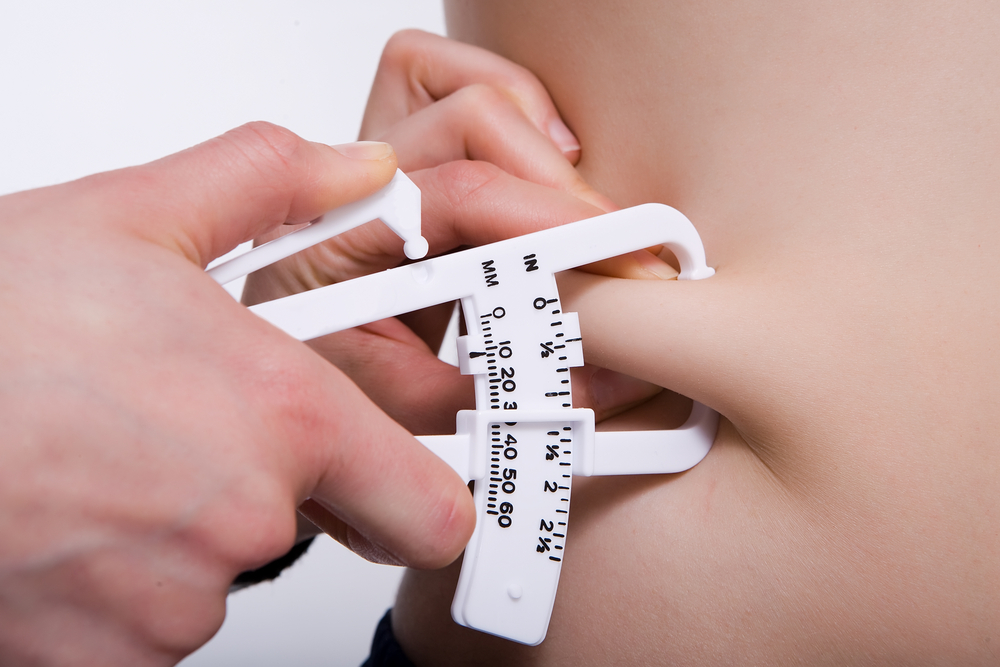“I want to lose weight” and “I want to lose Fat” are two sayings that are usually used interchangeably. However both are very different from each other.
In this article I will go over the differences between the two – and how stepping on the scales at different times of the day isn’t going to help your progress but also doesn’t mean anything.
You’ve also probably heard the term ‘calorie deficit’ thrown around quite a lot lately too, but can a misunderstanding of this be detrimental to your fat loss goals?
We’ll take an in-depth look at these subjects – so you can be certain you’re measuring the right things.
What is Fat Loss?
Fat loss refers to weight lost from body fat. It’s common practice to use scales to track any gains or losses but most scales cannot differentiate between fat loss and muscle loss.
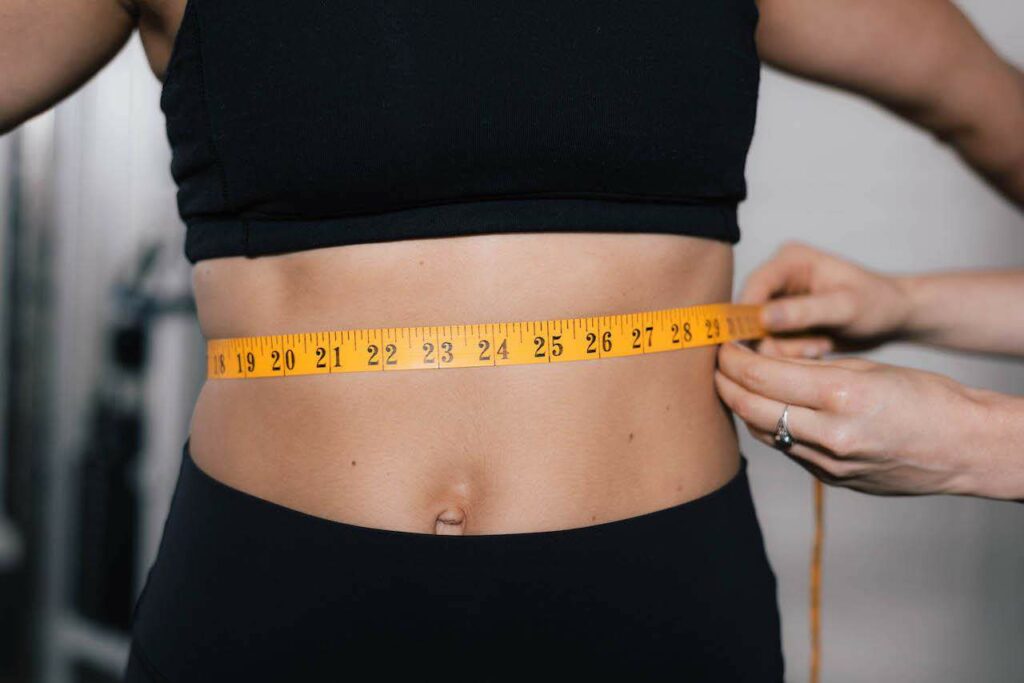
There are a number of different types of ‘fat’ in your body. Depending on who you speak to, you will get a number between 4-6 different types. However, ‘visceral fat’ is the most important when it comes to fat loss.
Visceral body fat is stored deep within the belly, wrapped around the body’s vital organs, including the liver and intestines – and it is impossible to see or know how much is there without using a specific body scanner, such as a Tanita Scale.
A waist measurement can be taken if a body scanner isn’t available. For women, your risk of chronic disease is increased if the waist circumference is 80 cm or more and for men 94cm or more. A high level of visceral fat can lead to heart disease, diabetes and liver disease – just to name a few.
The body fat sitting just underneath the skin is known as subcutaneous fat. This is the body fat that is visible and that you can feel and a reduction of subcutaneous fat usually leads to you feeling better about yourself, wanting to continue with the lifestyle, diet and training habits you have now made.
You cannot spot reduce your fat loss. So by decreasing your energy input and increasing your energy output over time will cause a reduction in both visceral and subcutaneous fat. In turn reducing your chances of getting diabetes, heart disease or liver disease etc.
What is ‘weight loss’
Weight loss refers to a reduction of the total body mass. Multiple things make up total body mass including, fluids, body fat, muscle mass, your skeleton and your organs.
Your total body mass can fluctuate throughout the day, as energy intake and energy expenditure occur. As well as general day to day chemical processes going on continuously inside the body that allow life and normal functioning. These processes include those that break down the food we consume and those that build and repair us after a training session.

A big drop in overall weight loss is not a good thing and it certainly isn’t very sustainable.
The weight of our organs and skeleton is not going to change, but how much fat, muscle mass and fluids we have in our bodies can change and do change. Trying to lose as much weight as possible in a short space of time can be extremely detrimental to our physical and mental health.
A big drop in our overall weight could just mean we’ve lost a significant amount of water and muscle mass as well as some body fat. This is not ideal for a healthy body. We want to maintain our muscle mass. Muscle mass keeps our metabolism elevated and keeps us strong. Dropping into a very low calorie deficit over a sustained period of time can mean there isn’t enough ‘energy’ to repair or help maintain this.
If your goal is to look smaller, feel more toned and be in better general shape, it’s your muscle mass that you will need to achieve this. Don’t lose it. It’s your body fat you want to be reducing.
Fat Loss vs Weight Loss
Like I said above, if your goal is to be healthier, slimmer or more toned, it’s your body fat you will need to reduce to achieve this. Not your muscle mass or overall fluid levels.
Muscle mass is key to longevity, reducing your chances of injury, reducing symptoms of the menopause and also strength and fitness goals you may have. Taking waist measurements or using a body scanner are a great way of checking if the new habits you have created are working.
Trying to drop as much weight as possible in a short space of time can lead to you putting it all back on and then some, if the ways you tried to achieve it were through poor nutrition, too much exercise and not enough sustainability. Weight loss can be quick but very detrimental to your fitness and health goals in the short and long term. Fat loss is what you are looking to achieve.
How is fat loss measured?
Science has improved significantly over the years and there are multiple reliable methods for measuring fat loss. However, the most reliable and accurate methods are those that reduce the chance of human error and have repeatable accuracy.
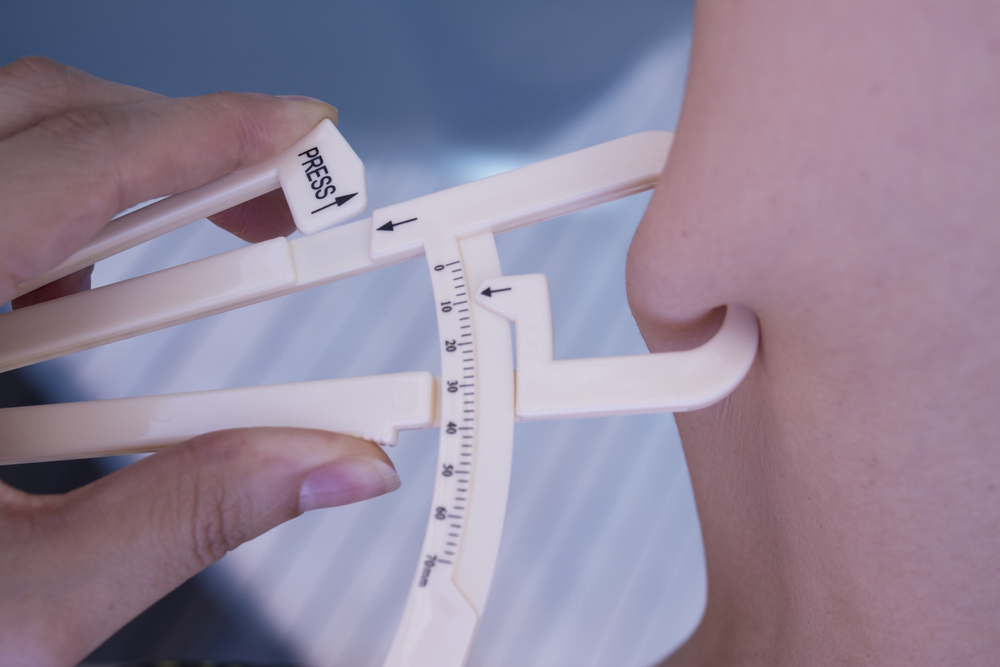
Skinfold callipers are an inexpensive way of measuring body fat, however repeatability leading to reliable and accurate results can be on the low side. Human error can lead to inaccuracies in taking and recording measurements.
A very reliable way of measuring body fat however is body scanners. These come in all shapes and sizes and can range quite significantly in price but they are great at producing reliable and accurate results with body fat %, muscle mass and also differentiating muscle mass in each limb to determine significant asymmetries that may need to be worked on.
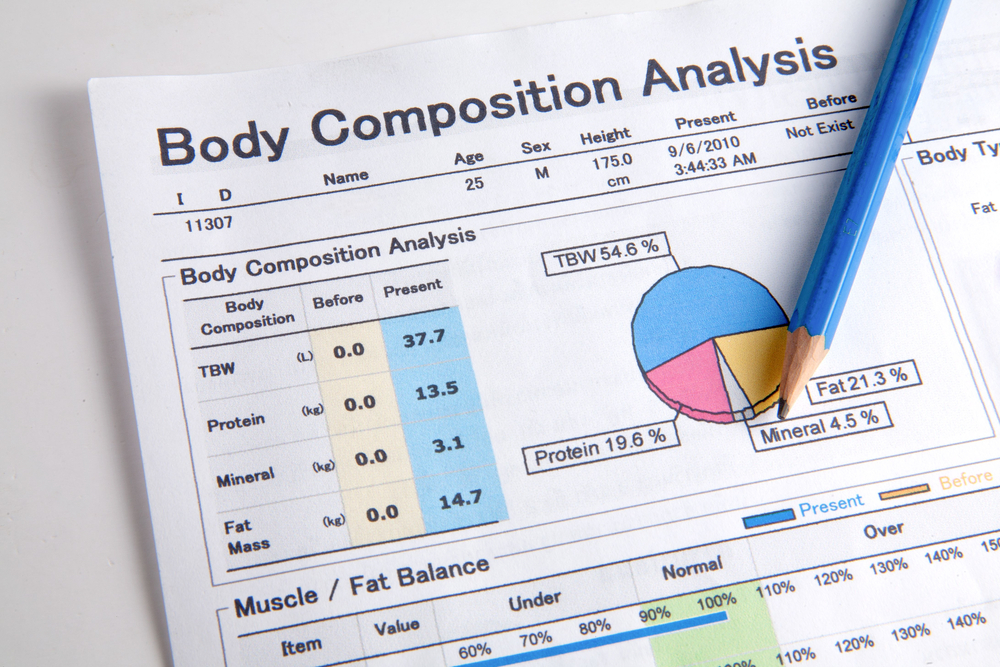
At Fitness Lab we use the Tanita body scanners and they are a great way of keeping clients accountable to their training and results.
We all love data, so seeing numbers and graphs that clearly show changes can be a great way of staying on track. As well as letting clients know how much body fat and muscle mass they have, they also say how hydrated they are, how much visceral fat they have and they also give a Basal Metabolic rate.
Knowing what our Basal Metabolic Rate is can really help with our nutrition. It helps us to create a calorie goal based on a client’s goals and also provide a protein target as well. Without this, a few weeks or sometimes months of guess work and trial and error have to happen to work out what will work.
How is fat loss achieved?
Fat loss is achieved through a calorie deficit. An energy deficit. The energy that you expend throughout the day has to be higher than the energy you are consuming though food and drink. The bigger the deficit, the quicker you will lose fat.
However a too big of a deficit can lead to exhaustion, overtraining and a shattered immune system.
The key is to find a deficit that works for you and your lifestyle without making too many changes too quickly and all at once. Small changes, and small new habits created over a longer time period will create natural sustainability. Fat loss isn’t an all or nothing game. It’s the tortoise and the hare. Slow and steady wins the race every single time.
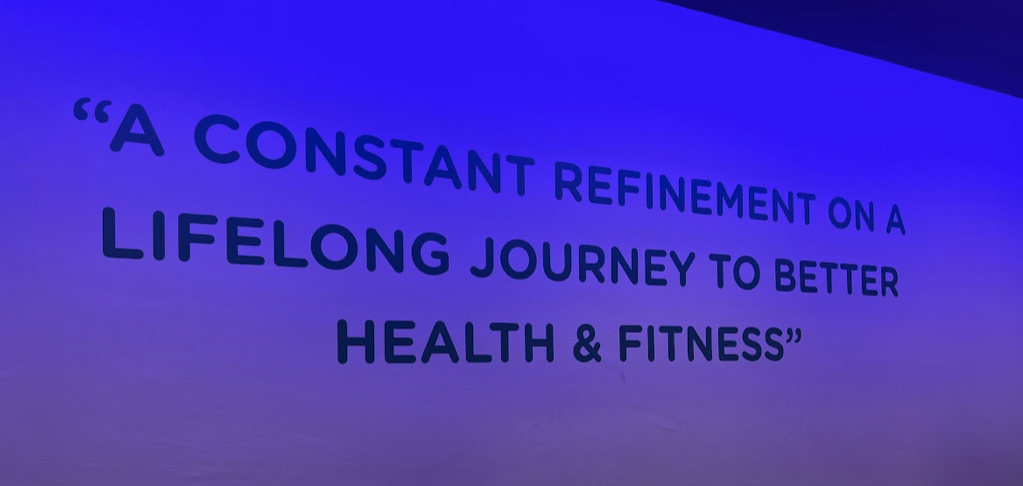
Super strict calorie restriction is not sustainable and it’s certainly not fun. Neither is excessive amounts of exercise. Overtraining is very real and can be extremely detrimental to your fat loss goals. Exhaustion and fatigue can be very damaging not only to your physical health but also your mental health. Setting new goals and creating better habits for yourself is as much a psychological game as it is physical.
When you first start out on your fat loss journey, strength training should be your number one priority.
Strength training builds and maintains muscle mass which is key to a great metabolism. Muscle doesn’t burn fat directly, but having more muscle mass means you burn more calories at the same body weight than if you had less muscle mass. Muscle is metabolically active tissue that requires energy to maintain, whereas fat tissue is not. So you technically burn more calories at rest meaning you can eat more during the day and not head into a significant surplus.
Everyone’s fat loss is different, but if you were to start training with a PT today, you would ideally have 2-3 strength sessions a week, a better understanding of nutrition and a great habit transformation plan that will work specifically for you.
We all have different jobs and lifestyles etc, so no fat loss journey will ever be a cookie cutter plan.
